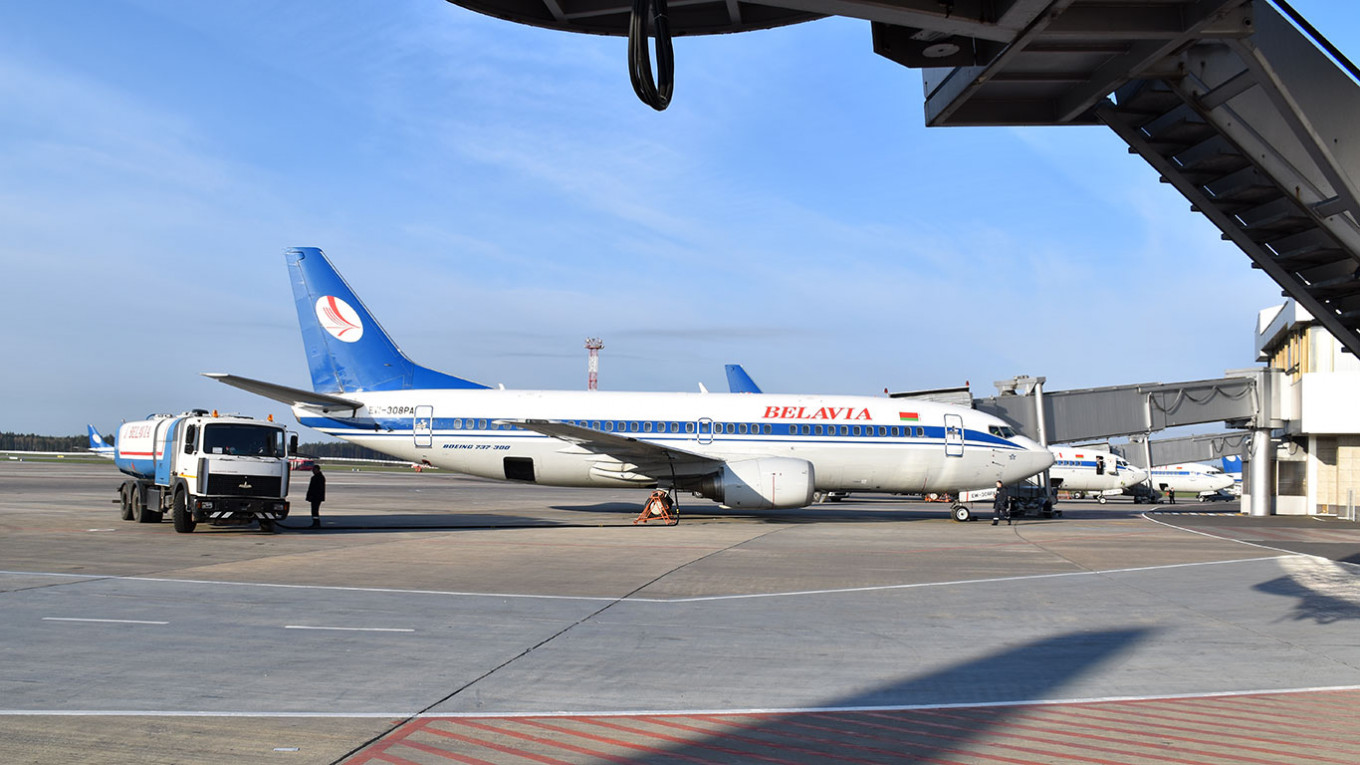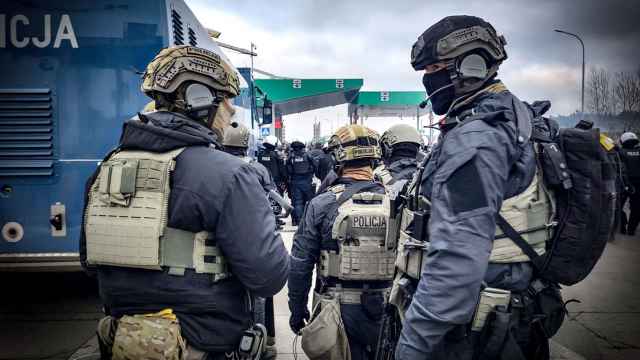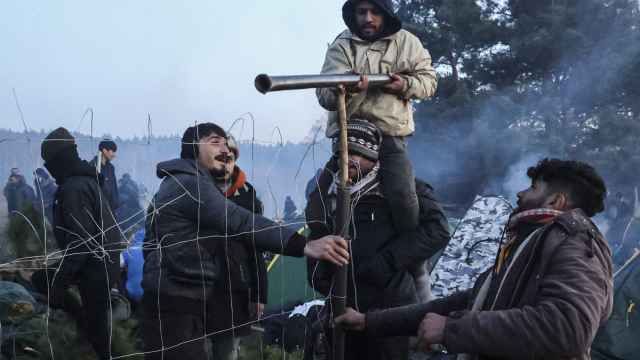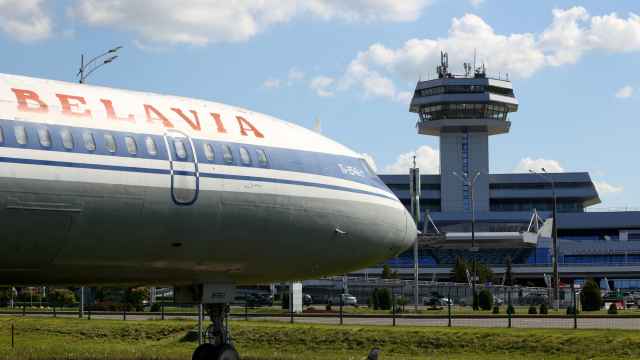Belarus’ flagship carrier Belavia announced Friday that it will no longer transport passengers from three Middle East countries from Turkey to Minsk as the migrant standoff on the Poland-Belarus border placed it at risk of EU sanctions.
Belavia said the ban on passengers from Syria, Iraq and Yemen goes into effect immediately and is the result of “the decision of Turkey’s competent authorities.”
EU officials said Thursday that they had agreed with Turkey to suspend the sale of Istanbul-Minsk tickets to citizens of the three countries and restrict one-way ticket sales from Turkey to the Belarus capital.
“Belavia Airlines passengers who fall under this ban can get a full refund without deductions at the place of purchase,” Belavia said in a short statement on its website.
Accusing Belarus President Alexander Lukashenko of orchestrating the border crisis in retaliation to its sanctions after his disputed 2020 election victory, the European Union has turned its attention to the air carriers that have been transporting the migrants to Minsk.
Media reports this week suggested that the 27-member bloc is close to imposing more sanctions on Belarus, as well as Russia’s flagship carrier Aeroflot and Turkish Airlines.Aeroflot on Thursday denied the allegations while Turkish Airlines later announced it would no longer allow Iraqi, Syrian and Yemeni nationals on its flights to Minsk.
According to the European Commission spokesman, Iraqi airlines have also agreed to halt flights to Minsk, Reuters reported on Friday.
Meanwhile, Iraqi and Kurdish authorities have announced plans to send evacuation flights to return their stranded citizens from Belarus, though the migrants themselves have told The Moscow Times that they seek to gain access to the EU at all costs.
A Message from The Moscow Times:
Dear readers,
We are facing unprecedented challenges. Russia's Prosecutor General's Office has designated The Moscow Times as an "undesirable" organization, criminalizing our work and putting our staff at risk of prosecution. This follows our earlier unjust labeling as a "foreign agent."
These actions are direct attempts to silence independent journalism in Russia. The authorities claim our work "discredits the decisions of the Russian leadership." We see things differently: we strive to provide accurate, unbiased reporting on Russia.
We, the journalists of The Moscow Times, refuse to be silenced. But to continue our work, we need your help.
Your support, no matter how small, makes a world of difference. If you can, please support us monthly starting from just $2. It's quick to set up, and every contribution makes a significant impact.
By supporting The Moscow Times, you're defending open, independent journalism in the face of repression. Thank you for standing with us.
Remind me later.






